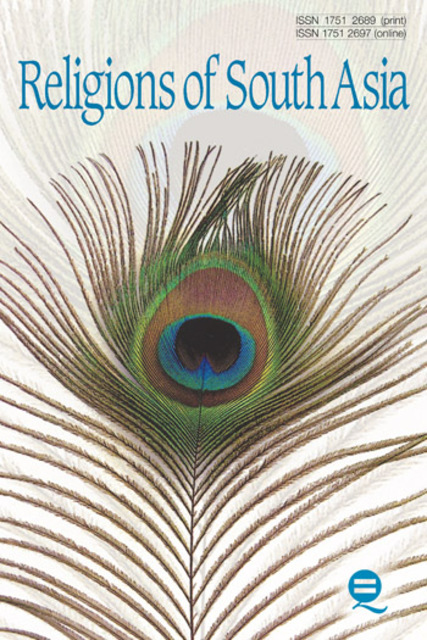The Dialectic of Divine ‘Grace’ and ‘Justice’ in St Augustine and Śrī-Vaiṣṇavism

Full description
This article is an investigation into whether it is possible to trace certain parallels between the conception of the divine reality as ‘gracious’ from within the contextualized vocabularies of both Christian thought and some forms of South Indian Vaisnavite devotional belief and practice. We explore the nature of a certain dialectic that appears in the thought of St Augustine, namely, between God’s prevenient grace and God’s justice: on the one hand, if grace is offered to human beings on the basis of their prior merits, it is not an unmerited gift that is freely and unconditionally given by God, but, on the other, if God does not graciously approach all human beings, the divine salvific will seems to be ‘arbitrary’, at least from a human perspective. Some Vaisnavite theologians have grappled with a similar dialectic in conceptualizing the relation between Brahman who ‘graciously’ elects the devotee and Brahman who is the ‘just’ supervisor of the karmic order of retributions and rewards: on the one hand, if Brahman is under the sway of the law of moral causation, Brahman is not supreme over the world, but, on the other, if Brahman liberates only a few individual selves without regard to operation of the karmic principle, Brahman is partial to them.
- typeImage
- created on
- file formatjpeg
- file size132 KB
- container titleReligions of South Asia
- creatorAnkur Barua
- issn1751-2697 (Online)
- rights holderEquinox Publishing Ltd.
- volume4.1
- doi
We use cookies to analyze our traffic. Please decide if you are willing to accept cookies from our website. You can change this setting anytime in Privacy Settings.
